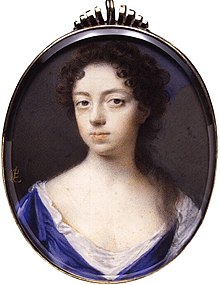Fragment at Tunbridge-Wells
Anne Kingsmill Finch 1661 – 1720 (Westminster)
FOR He, that made, must new create us,
Ere Seneca, or Epictetus,
With all their serious Admonitions,
Can, for the Spleen, prove good Physicians.
The Heart's unruly Palpitation
Will not be laid by a Quotation;
Nor will the Spirits move the lighter
For the most celebrated Writer.
Sweats, Swoonings, and convulsive Motions
Will not be cur'd by Words, and Notions.
Then live, old Brown! with thy Chalybeats,
Which keep us from becoming Idiots.
At Tunbridge let us still be Drinking,
Though 'tis the Antipodes to Thinking:
Such Hurry, whilst the Spirit's flying,
Such Stupefaction, when 'tis dying;
Yet these, and not sententious Papers,
Must brighten Life, and cure the Vapours
Font size:
Submitted on May 13, 2011
Modified on March 05, 2023
- 34 sec read
- 43 Views
Quick analysis:
| Scheme | AABBCCDDBB AXEEEEXA |
|---|---|
| Closest metre | Iambic pentameter |
| Characters | 669 |
| Words | 112 |
| Stanzas | 2 |
| Stanza Lengths | 10, 8 |
Translation
Find a translation for this poem in other languages:
Select another language:
- - Select -
- 简体中文 (Chinese - Simplified)
- 繁體中文 (Chinese - Traditional)
- Español (Spanish)
- Esperanto (Esperanto)
- 日本語 (Japanese)
- Português (Portuguese)
- Deutsch (German)
- العربية (Arabic)
- Français (French)
- Русский (Russian)
- ಕನ್ನಡ (Kannada)
- 한국어 (Korean)
- עברית (Hebrew)
- Gaeilge (Irish)
- Українська (Ukrainian)
- اردو (Urdu)
- Magyar (Hungarian)
- मानक हिन्दी (Hindi)
- Indonesia (Indonesian)
- Italiano (Italian)
- தமிழ் (Tamil)
- Türkçe (Turkish)
- తెలుగు (Telugu)
- ภาษาไทย (Thai)
- Tiếng Việt (Vietnamese)
- Čeština (Czech)
- Polski (Polish)
- Bahasa Indonesia (Indonesian)
- Românește (Romanian)
- Nederlands (Dutch)
- Ελληνικά (Greek)
- Latinum (Latin)
- Svenska (Swedish)
- Dansk (Danish)
- Suomi (Finnish)
- فارسی (Persian)
- ייִדיש (Yiddish)
- հայերեն (Armenian)
- Norsk (Norwegian)
- English (English)
Citation
Use the citation below to add this poem to your bibliography:
Style:MLAChicagoAPA
"Fragment at Tunbridge-Wells" Poetry.com. STANDS4 LLC, 2024. Web. 19 Apr. 2024. <https://www.poetry.com/poem/3257/fragment-at-tunbridge-wells>.



Discuss the poem Fragment at Tunbridge-Wells with the community...
Report Comment
We're doing our best to make sure our content is useful, accurate and safe.
If by any chance you spot an inappropriate comment while navigating through our website please use this form to let us know, and we'll take care of it shortly.
Attachment
You need to be logged in to favorite.
Log In